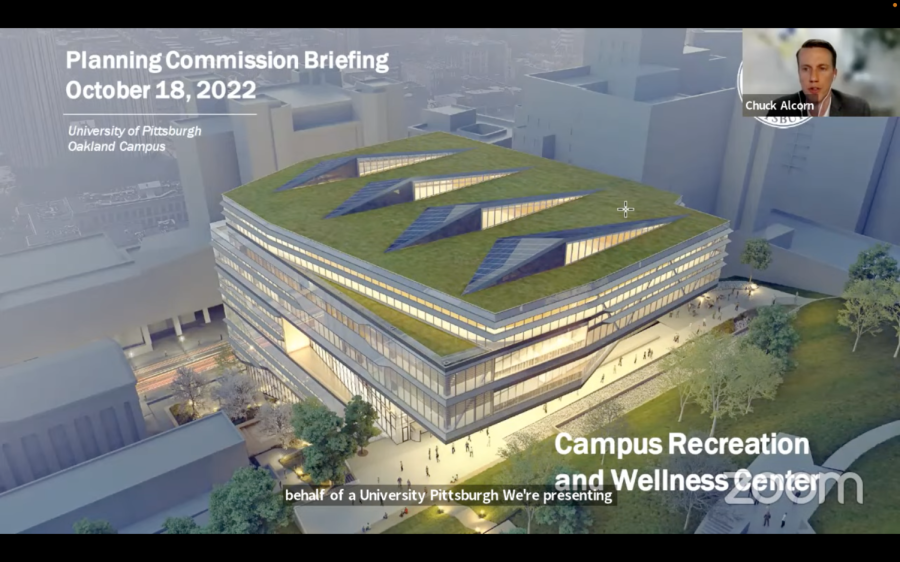Pittsburgh Planning Commission talks accessibility at new recreation center
The Pittsburgh Planning Commission held a meeting to discuss development of the new campus recreation and wellness center, as well as other projects throughout Pittsburgh.
October 18, 2022
The Pittsburgh Planning Commission held a meeting over Zoom Tuesday to discuss development of the new Campus Recreation and Wellness Center at 3921 O’Hara St., as well as other projects throughout Pittsburgh.
Pitt Planner Chuck Alcorn said the goals of the new building, which is a part of Pitt’s Institutional Master Plan first revealed in 2019, include “iconic architecture, increasing quantity and quality of urban open space and providing an accessible connection between mid- and upper campus.” He said this is the first Pitt project to address accessibility on Cardiac Hill.
The center is projected to be completed in fall 2024.
“This is the first project to provide an accessible connection from mid- to upper campus, an elevation change of approximately 76 feet to address typical demography challenges,” Alcorn said. “The project uses a series of stacked indoor recreation spaces to refer to the height of the hillside and provide an internal vertical circulation system using elevators in the building that addresses a portion of the hillside condition on campus … and this ADA connection will be welcomed to help traverse that elevation change.”
The commission also discussed exterior alterations of the Point Park Center, demolition and new construction on 26th and Railroad streets in the Strip District and new construction on 2926 Smallman St. in the Strip District.
Commissioner Holly Dick asked if the recreation and wellness center will have a backup generator in case of an “unexpected power outage.”
Alcorn said they will include backup generators in the project.
“There will be generators providing power to the elevators and of course providing lighting in different floors,” Alcorn said. “I mean, in such cases as unfortunate as a fire or some other building emergency, of course, elevators might not be offered up at that point. But there will be generators to ensure usage of the elevators.”
Dick said the inclusion of a backup generator is “important.”
“I think it’s really really important that the person utilizing a wheelchair … know that there is a backup if the power goes down,” Dick said.



